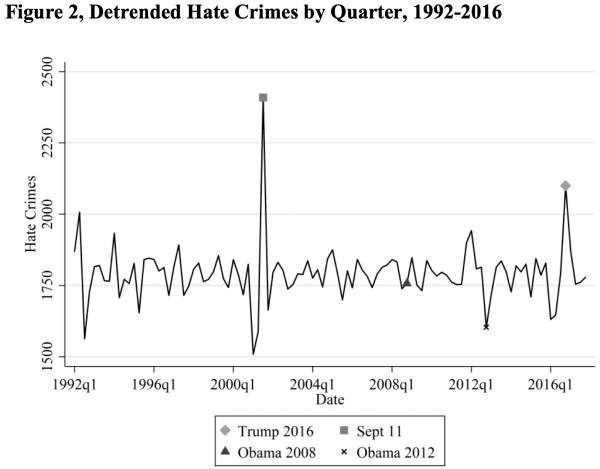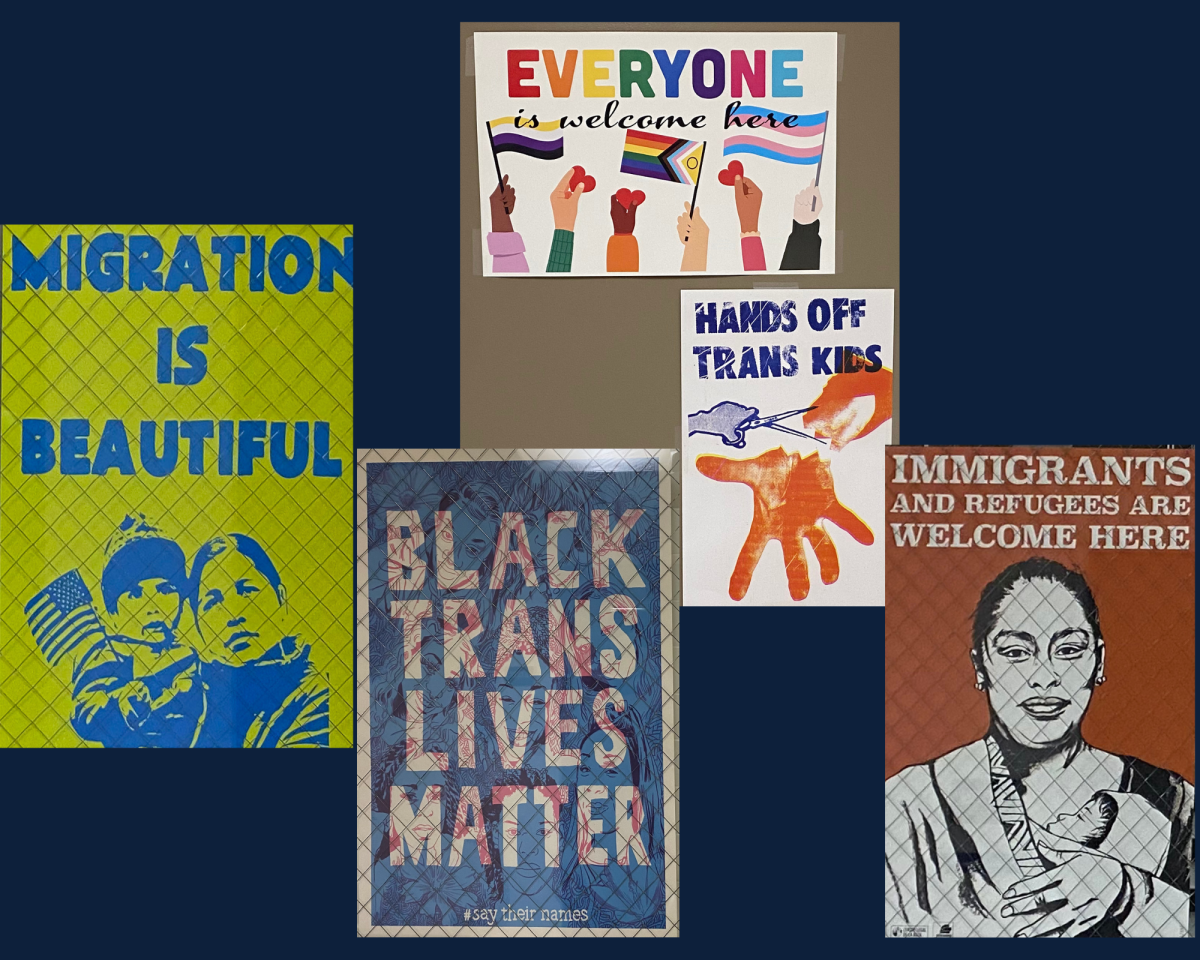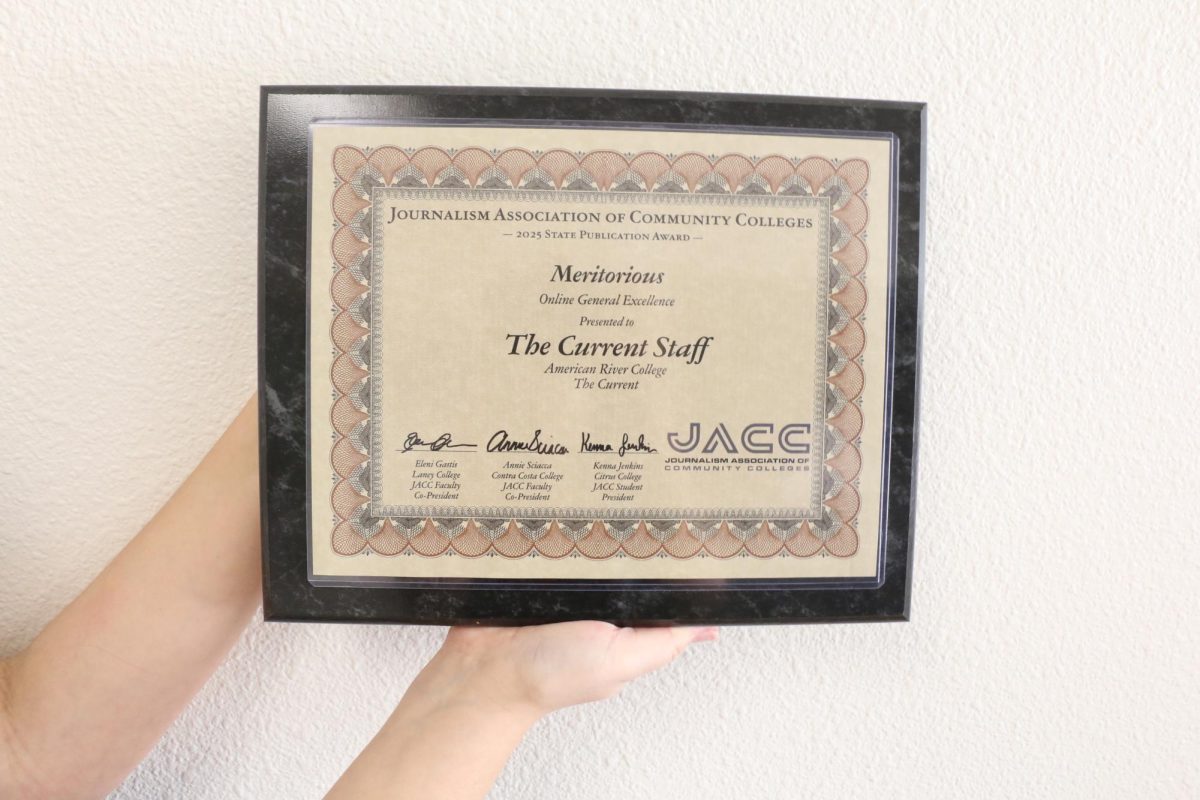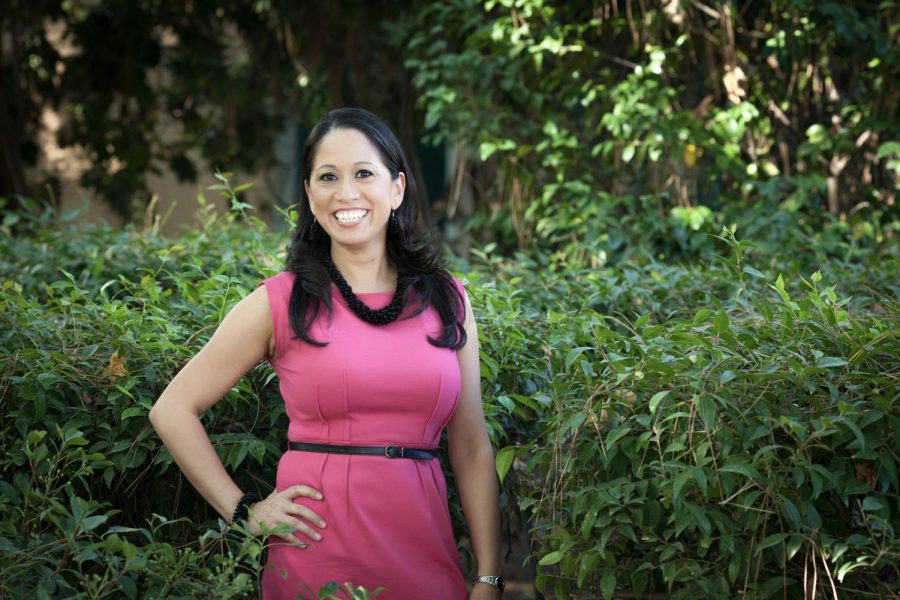The recent election outcome has raised concerns about human rights, especially for women, undocumented immigrants, people of color and LGBTQ+ individuals. President-elect Donald Trump has a history of undermining human rights, promoting harmful homophobic and transphobic legislation, and cutting funding for essential programs like Medicaid, SNAP, SSDI, public housing and other aid initiatives. When Trump takes office on Jan. 25 students may face challenges accessing assistance and protections related to sexuality, gender, race and ethnicity.
However, the Los Rios Community College District and American River College administration have shown that they are committed to supporting students, ensuring they can pursue education confidently, free from discrimination, and with the resources and support needed to succeed.
Trump has hit the ground running with quick, shocking cabinet selections. Several nominees contributed to Project 2025, despite Trump’s previous efforts to distance himself from it. His administration aims to steer the country more conservatively by reducing government intervention, focusing less on human rights and dismantling public assistance services.
Trump appointed Elon Musk and Vivek Ramaswamy to lead an initiative to reduce government spending, where they’ll likely prioritize market forces over public services, potentially harming vulnerable populations. He also selected Robert F. Kennedy Jr., a vocal vaccine critic and conspiracy theorist, to oversee the Department of Health and Human Services, raising concerns about potential harm to public health efforts. Richard E. Besser, a former leader at the Centers for Disease Control and Prevention (CDC), has said that Kennedy “is a danger to America’s health.”
Stephen Miller, a long-time Trump adviser and key architect of his immigration policies, has been named deputy chief of staff for policy in Trump’s next administration. He plans to push for a tenfold increase in deportations alongside former Immigrations and Customs Enforcement (ICE) director Tom Homan, who will oversee deportation efforts and aviation security. Known for enforcing the “zero-tolerance” policy that led to family separations, Homan faces scrutiny as 1,360 children remain separated from families.
Project 2025, led by the Heritage Foundation and over 100 conservative groups, promotes a far-right agenda, including defunding schools teaching “critical race theory” and weakening LGBTQ+ protections. Although Trump distanced himself from it, he appointed several key contributors such as Miller, Homan, Ratcliffe and Carr. Several initial cabinet picks for a second Trump term have been proven disturbingly troublesome, including Matt Gaetz, who withdrew his AG nomination amid sex trafficking accusations, and Pete Hegseth, accused of sexual assault.
This pattern of controversy extends beyond Trump’s cabinet, with growing evidence linking his campaign events to a surge in hate-driven violence. FBI data has shown a significant rise in hate crimes after Trump’s 2016 election, especially in counties he won by larger margins. This increase was the second-largest in 25 years, surpassed only by the post-9/11 surge.

There is vast potential for Trump to undermine human rights in countless ways, making it difficult to predict exactly where he will begin. We know that the Trump administration plans to reduce government spending, targeting social programs first, while simultaneously pushing for tax cuts benefiting businesses and high-income individuals. On Trump’s very first day in office back in 2017, he immediately signed an executive order instructing administration officials “to waive, defer, grant exemptions from, or delay” implementing parts of the Affordable Care Act. His previous administration sought to dismantle parts of the ACA and cut funding for its advertising and outreach, which had enabled states to expand Medicaid, increasing healthcare access for millions of previously ineligible low-income adults.
“While Medicaid covers one in five people living in the United States, Medicaid is a particularly important source of coverage for certain populations. In 2021, Medicaid covered four in ten children, eight in ten children in poverty, one in six adults, and almost half of adults in poverty,” according to a 2023 article by the Kaiser Family Foundation.
Students at ARC may be impacted by cuts to social programs like Medicaid, SNAP and TANF, especially with Trump’s return to the presidency with a Republican-led Congress. Proposed Medicaid cuts aim to fund tax reductions, while implementing spending caps, block grants and work requirements. These changes could reduce access to essential assistance for many individuals. Students may face challenges qualifying for or maintaining benefits and should prepare for potential enrollment loss.
Concerns over civil liberties rise under a second Trump administration, particularly regarding his opposition to trans women in sports. He argues that their participation is unfair to cisgender women and has both criticized and issued guidelines against the inclusion of trans women. Republican-led states have since moved to ban trans women and girls from women’s sports, with Trump continuing to back these policies.
In his first year in office, Trump banned transgender military service, a policy reversed by Biden in 2021. The Trump administration consistently regressed on LGBTQ+ rights, particularly transgender issues, rolling back protections and supporting policies restricting healthcare, military service and sports equality, despite widespread support for transgender healthcare from major medical organizations.
Over 30 organizations have issued statements in support of trans healthcare. The American Medical Association has repeatedly urged politicians to oppose state legislation that would prohibit medically necessary gender transition-related care for minor patients, calling such efforts “a dangerous intrusion into the practice of medicine.” In a letter to the National Governors Association, the AMA presented evidence that trans and non-binary identities are natural variations of human expression, and that neglecting gender-affirming care can result in serious mental and physical health risks.
Trump’s campaign made anti-trans ads the biggest focal point of its spending, exacerbating division and resentment throughout the U.S voting bloc, even though transgender adults make up 0.5% of the U.S. population, a 2022 Williams Institute report shows. The TV and social media posts spread falsehoods about medical care for trans youth and cast trans athletes as predators, despite most convictions of child sexual exploitation being charged against white heterosexual men in areas like Northern and Central California.
From August through early October, GOP candidates dropped $65 million on anti-trans advertising, according to a New York Times analysis. Republicans spent nearly $215 million on anti-trans ads this election period, according to data released by Ad Impact. In reality, transgender care costs far less to address than the price of fighting it.
“That’s $134 per trans person in anti-trans ad spending,” Alejandra Caraballo, a clinical instructor at Harvard Law’s Cyberlaw Clinic, shared on X, formally known as Twitter.
A 2022 study by the American Society of Law, Medicine & Ethics analyzed nearly 30 years of insurance claims data from over 200 million people to examine trends in gender-affirming care and its costs. The study found that, despite increased accessibility, the financial impact on payer budgets remains minimal. A cost-effectiveness study estimated the average cost of gender-affirming care at just $0.016 per person across the U.S. population.
There have been more than 129 anti-LGBTQ+ laws passed across the country in the last two years, addressing transgender rights, gender-affirming care, LGBTQ+ education and public accommodations. Advocates warn of harm to vulnerable groups, especially transgender youth, due to the erosion of protections.
These laws claim to protect children, but in reality they punish caregivers and doctors who support them, effectively denying transgender youth access to essential healthcare and exacerbating the already critical rates of depression and suicide among them. They fuel discrimination, and exposure to anti-trans rhetoric is proven to harm mental health—86% of trans and nonbinary youth say debates over these bills worsened their well-being, with half reporting cyberbullying and a third feeling unsafe seeking care. Another study showed that suicide attempts among trans youth rose by up to 72% the year after anti-trans laws were passed. Many transgender teens and young adults end up fleeing their home states on account of hostility, coming to colleges such as ARC to find a community that accepts them for who they are.
The loyalists and ideologues behind Project 2025, set to staff a second Trump administration, will not only reshape the federal workforce culture—likely creating a hostile environment for LGBTQ+ employees—but also control funding for key programs like the Affordable Care Act and Title IX, which bans sex discrimination in education.
Fortunately, California has taken significant steps to support the LGBTQ+ community, including passing Proposition 3 to protect marriage rights in the state constitution and enacting protections for transgender individuals seeking gender-affirming care. Governor Newsom declared Nov. 20 “Transgender Day of Remembrance” in California, honoring victims of anti-trans violence and reaffirming the state’s commitment to LGBTQ+ equality.
While ARC students are unlikely to face direct legal challenges to their identities, they may still encounter hostile ridicule from those emboldened by the current political climate. The ARC Pride Center provides a safe, welcoming space for students, advocates for LGBTQIA+ individuals and allies, while fostering leadership, empowerment and community involvement. ARC has also compiled a list of 30 universities and colleges across the country recognized as LGBTQIA+ Safe Transfer Options.
Trump’s judicial legacy is defined by overturning Roe v. Wade, dismantling much of the U.S. legal framework for abortion rights. His nominees, Justices Barrett, Kavanaugh and Gorsuch, joined Thomas and Alito in the 5-4 decision in Dobbs v. Jackson Women’s Health (2022), which struck down Roe. This decision triggered widespread consequences, with abortion being banned in 13 states and severely restricted in others, resulting in preventable deaths.
Project 2025 seeks to ban or heavily restrict access to mifepristone, a medication used in over half of abortions. It would also require states protecting reproductive rights to report data on individuals traveling for care and weaken HIPAA protections for those seeking reproductive health services.
California has become a leader in reproductive rights following the 2022 Dobbs decision, which overturned Roe v. Wade and reshaped state abortion laws. In 2022, Proposition 1 amended the state constitution to guarantee reproductive freedom. The state strengthened protections by shielding individuals and providers from out-of-state legal actions and expanding abortion access through more healthcare providers. Medication abortions, including mifepristone and misoprostol, are available in clinics and via telemedicine, with protections for out-of-state residents and providers. Further, ARC students have access to sexual health resources, including birth control, pregnancy support and STD/HIV testing.
Regarding undocumented students, The Los Rios Community College District issued a statement on Nov. 21 reaffirming its commitment to supporting immigrant and undocumented communities, emphasizing that recent election results will not impact its dedication to ensuring everyone’s right to learn and thrive. The LRCCD supports a permanent DACA solution and pathway to citizenship, and the Los Rios Police will not engage in immigration enforcement, in line with state law and district values. The district is committed to protecting students’ rights, confidentiality and immigration status.
Trump has proposed ending protections for over half a million Dreamers and 176,000 Ukrainians. Project 2025 calls for Congress to repeal all Temporary Protected Status (TPS) designations, impacting nearly 700,000 long-term immigrants, stripping their work authorization, and exposing them to deportation. It also seeks to reduce or eliminate various visa categories, potentially forcing Ukrainian students to return to a war-torn homeland.
California’s Attorney General Rob Bonta released a statement on Dec. 4 in response to increased threats to California immigrant communities.
“We cannot let the Trump deportation machine create a culture of fear and mistrust that prevents immigrants from accessing vital public services,” Bonta said.
Several laws, including the CA Dream Act (AB 130 and AB 131), protect undocumented students’ access to higher education, allowing them to apply for scholarships, state aid, fee waivers and Cal Grants. The LRCCD also provides resources to support and ensure the safety of undocumented students.
ARC students face a unique challenge: though not directly impacted by abortion bans, anti-LGBTQ+ policies or deportations, they are witnessing harmful legislation that threatens reproductive rights, LGBTQ+ freedoms, healthcare access and immigration protections. Merely discussing these issues can create fear and insecurity for those impacted, even if they are not directly involved.
For students concerned about the upcoming administration, both the LRCCD and ARC are committed to supporting them, ensuring they can continue their education confidently, free from discrimination and with the resources needed to succeed.
This article is the fourth in a multi-part series.














